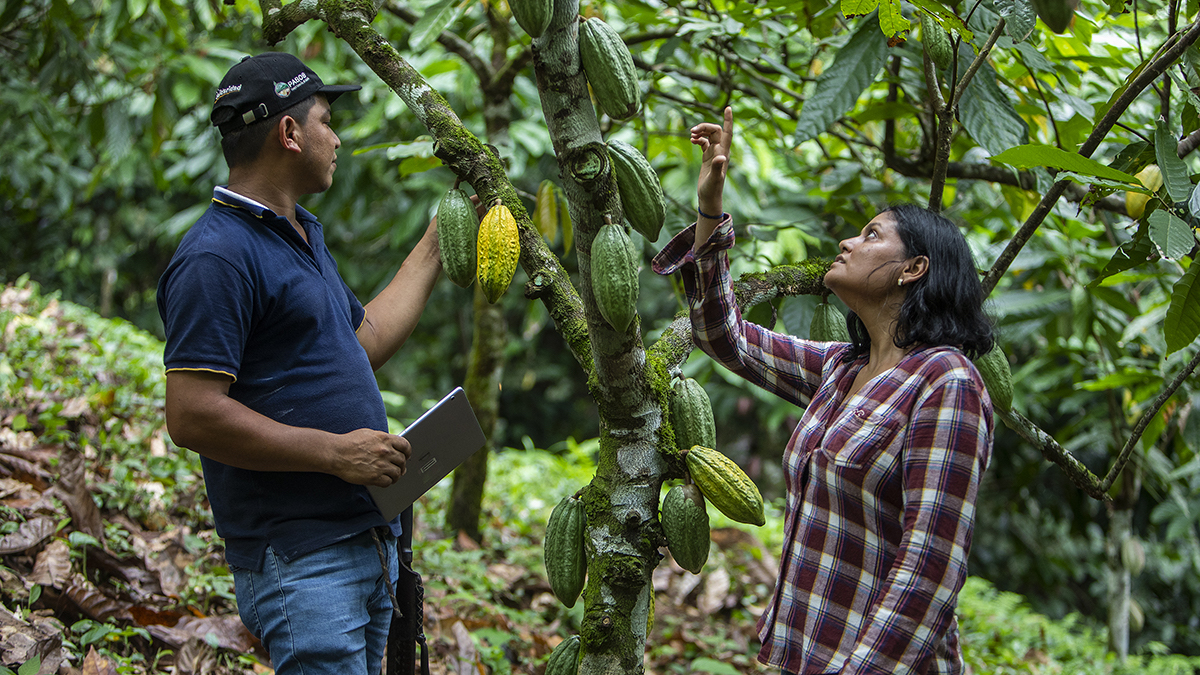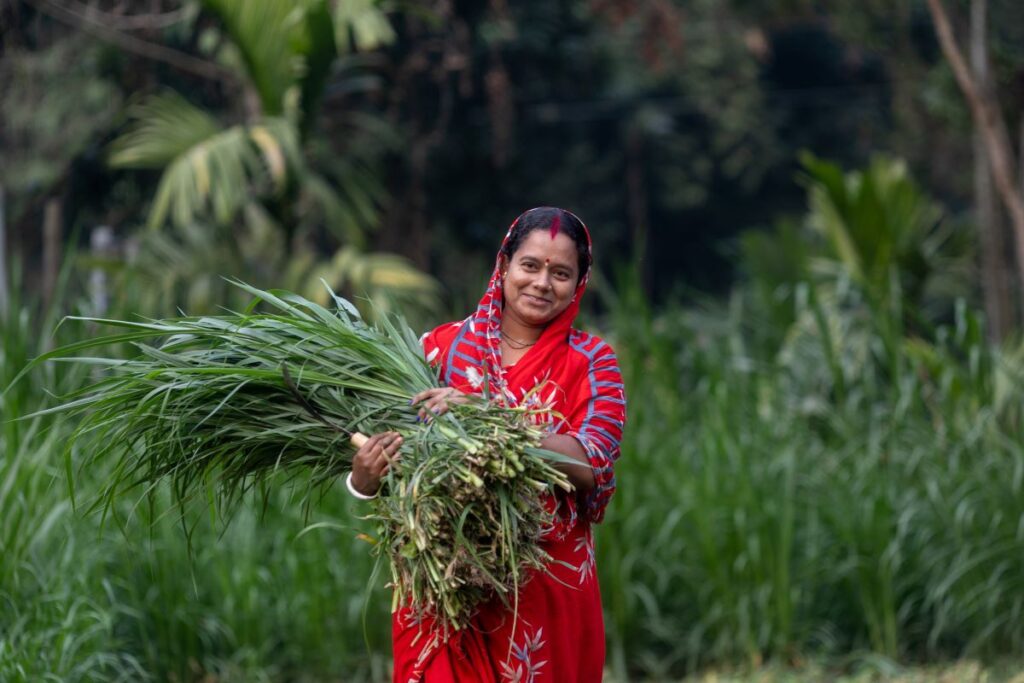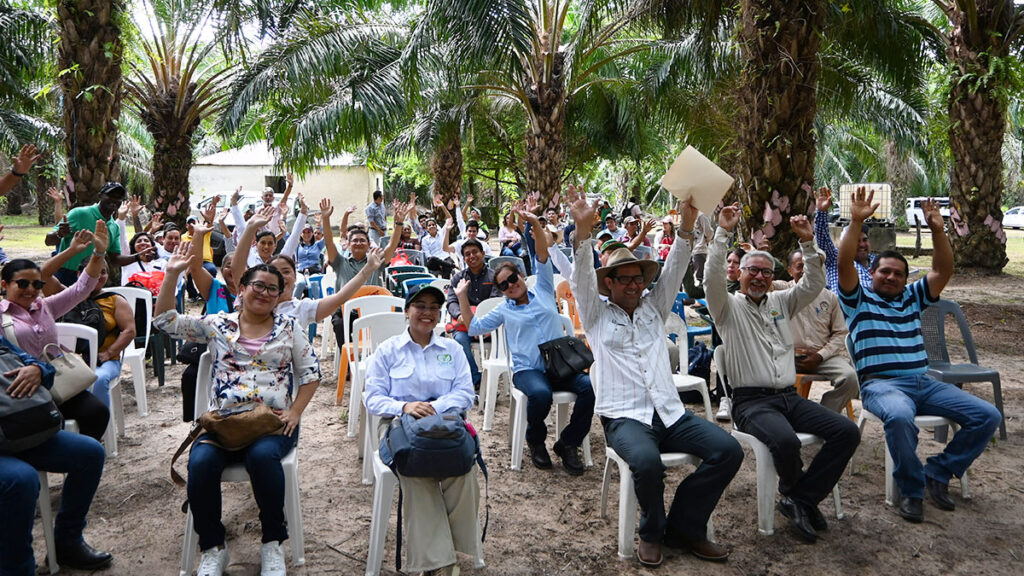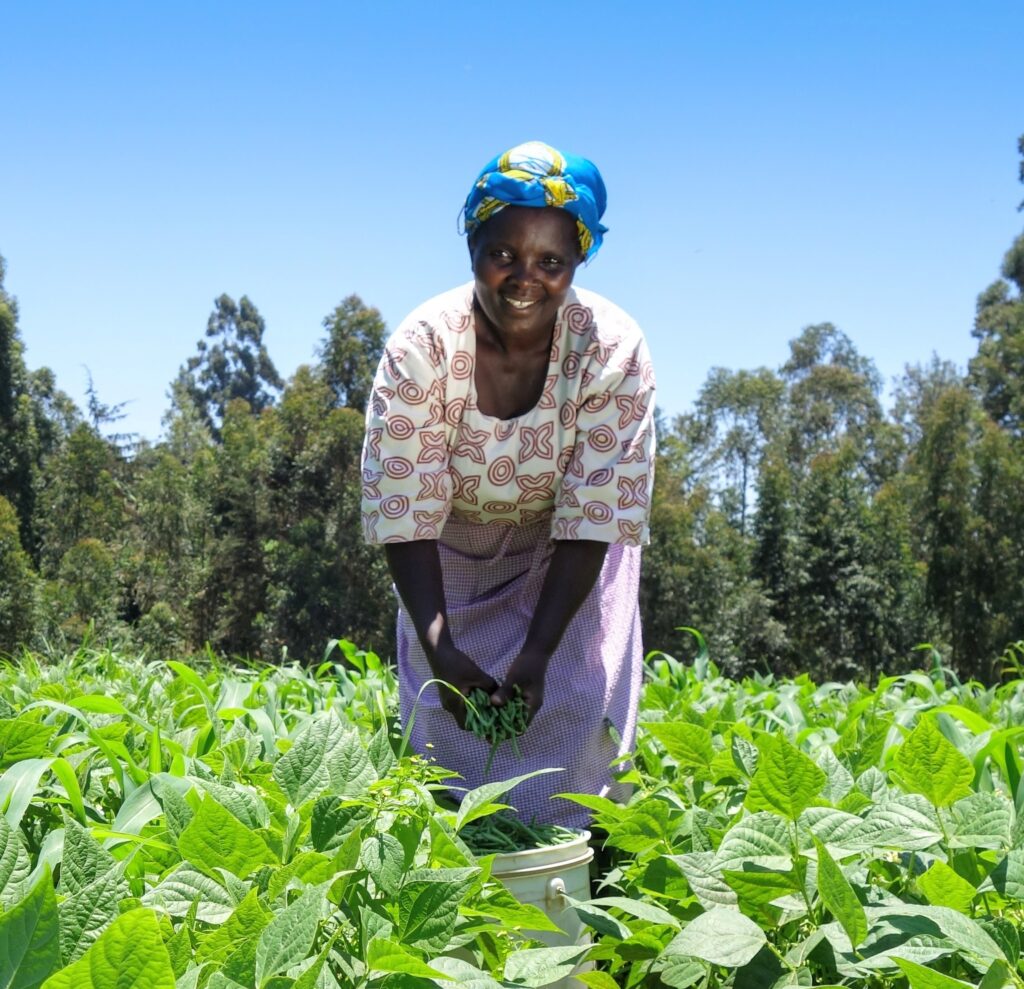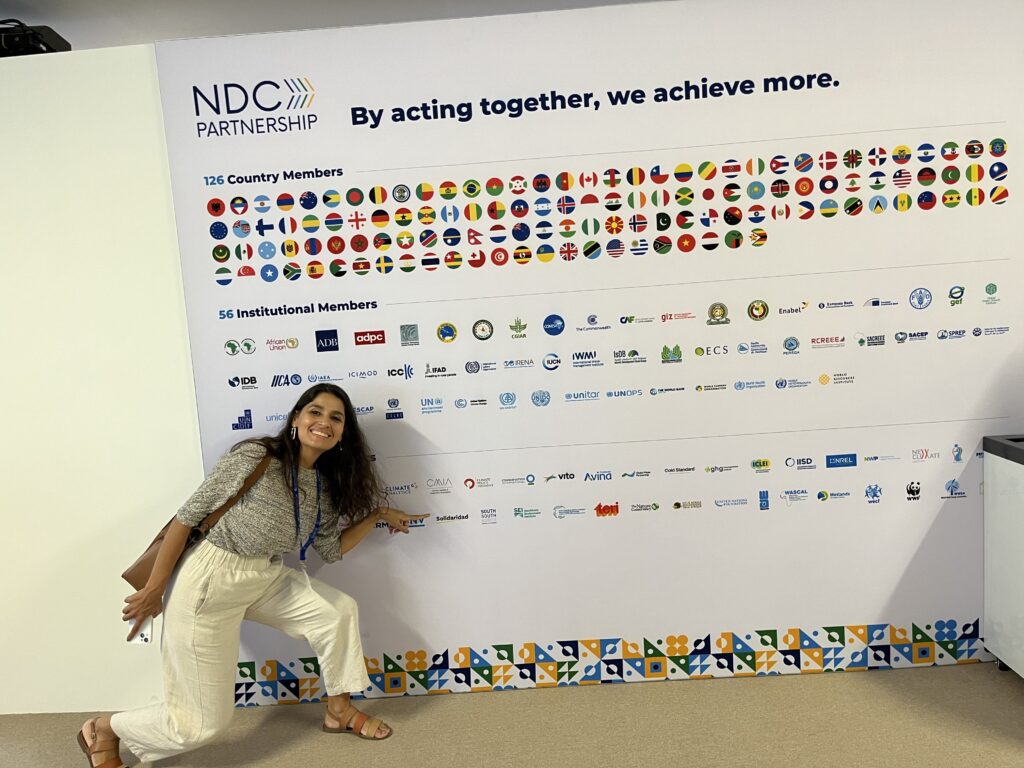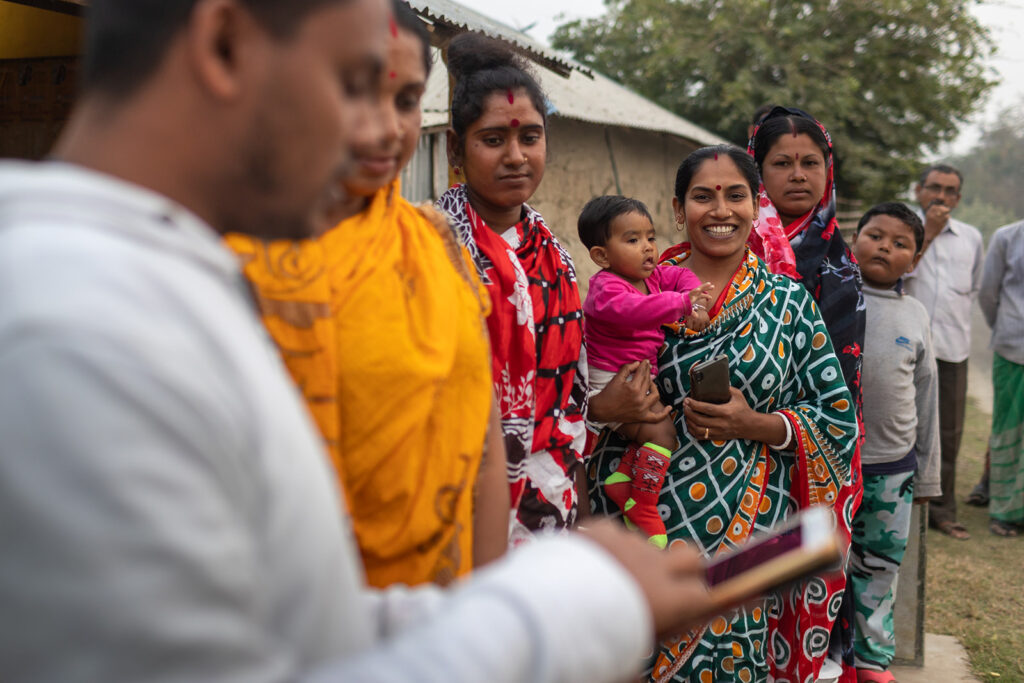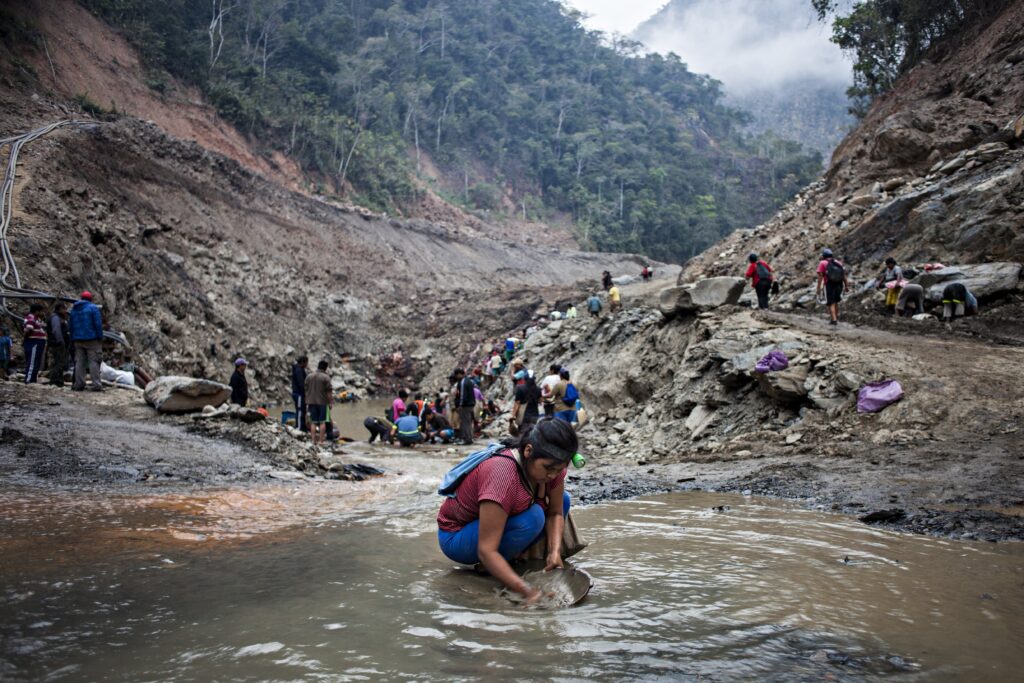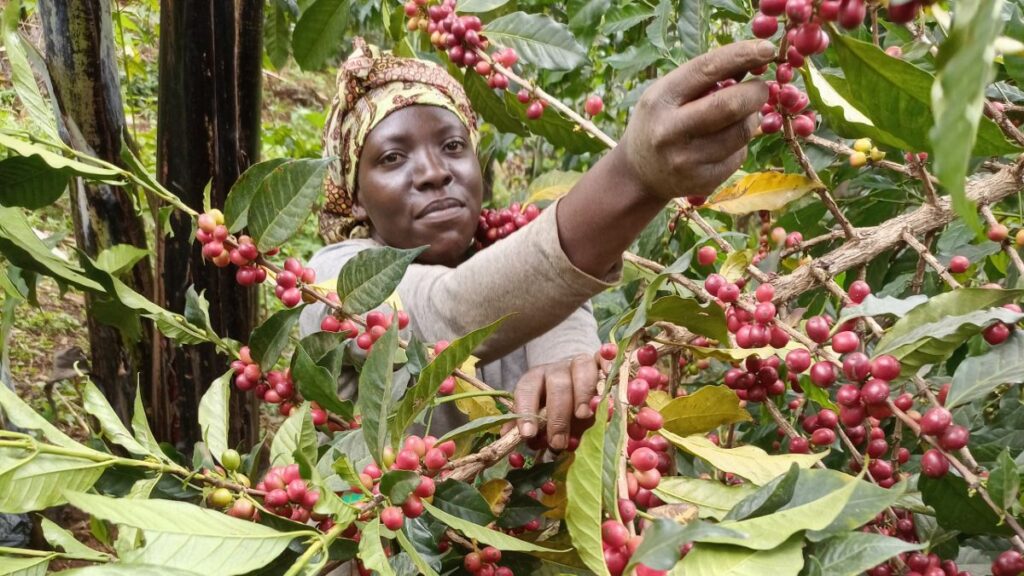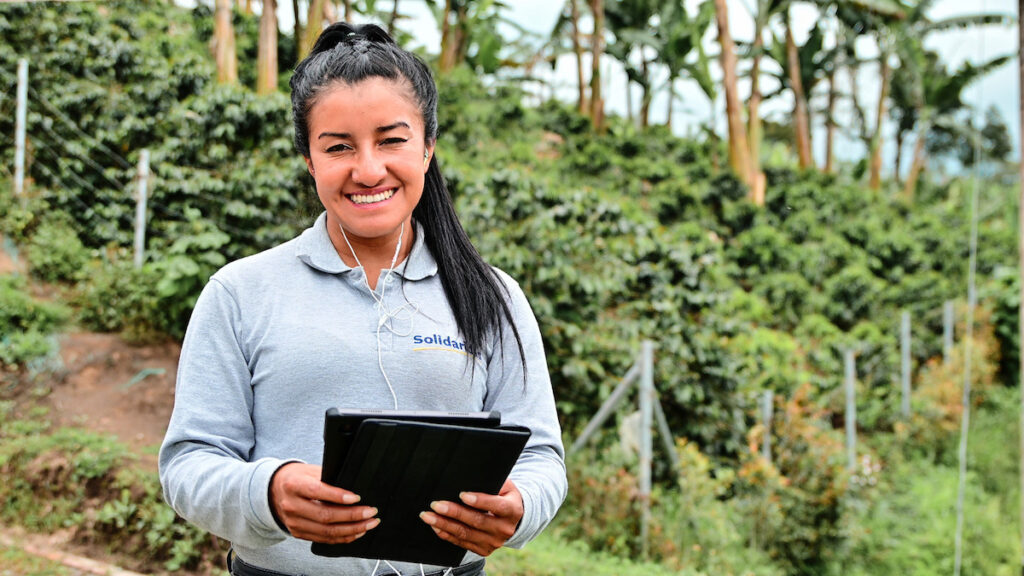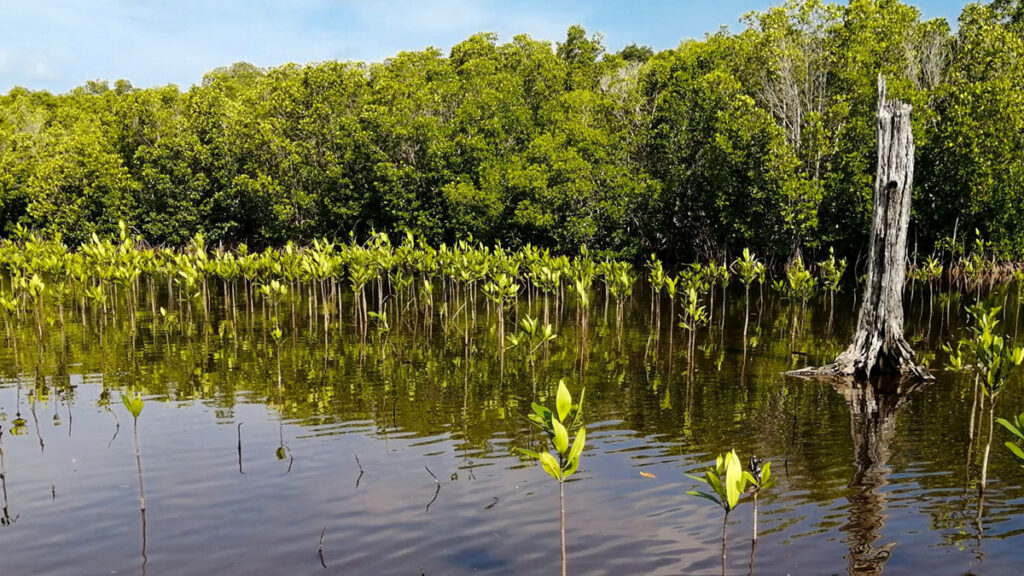Greenhouse gas (GHG) emissions in 2019 reached new record levels. After a 5.4 percent drop in 2020, global CO2 emissions are back to pre-pandemic levels, and GHG emissions in 2021 may only be slightly lower than in 2019. World leaders have been convening for years to make commitments to address climate change. So what can we do to take action now?
Sustainable agriculture included in new commitments at COP26
Between 31 October and 12 November, leaders across the world convened at COP26 to accelerate action towards prior and new commitments to climate change goals.
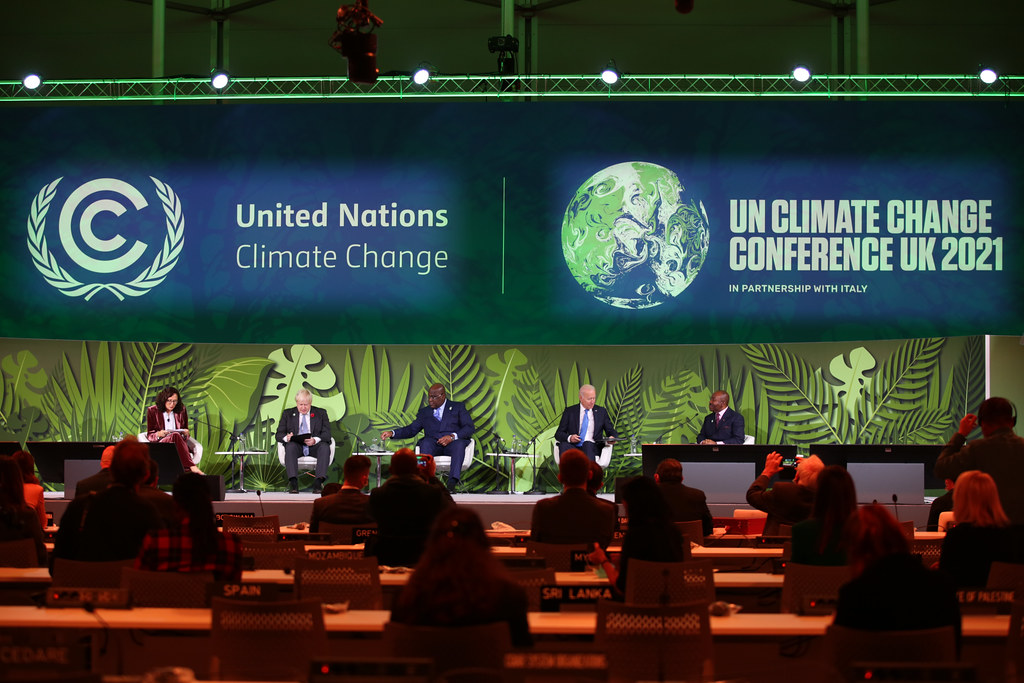
During the conference, more than 40 world leaders signed on to the Breakthrough Agenda, a clean technology plan to help limit the rise in global temperature to 1.5°C. On 2 November, UK Prime Minister Johnson set out the Glasgow Breakthroughs, which cover over half of global emissions reduction targets through clean power, zero-emission vehicles, near-zero emission steel production, renewable and low-carbon hydrogen, and climate-resilient, sustainable agriculture.In his speech at COP26, Honduran President Hernández urged participating leaders to truly commit to taking climate action, citing Economic Commission for Latin America figures that show damages and losses in Honduras from 2020’s Eta and Iota hurricanes were $2.1 billion, equivalent to 9.2 percent of the country’s gross domestic product (GDP). To bring these numbers into context for G20 countries, he shared figures equivalent to 9.2 percent of the GDP in Germany, the United States and the United Kingdom.
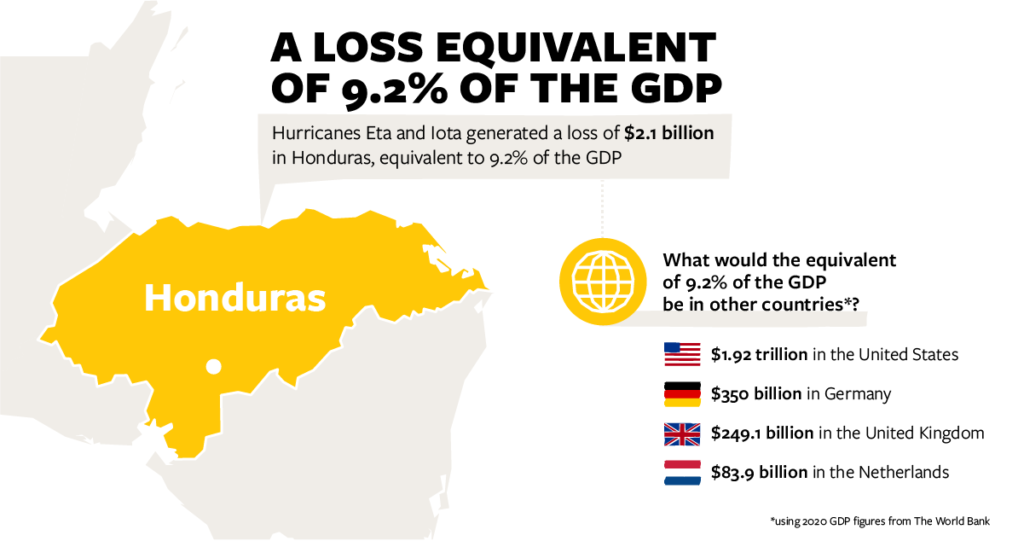
In the context of COP26, Solidaridad calls on major economies to deliver on their promise to mobilise at least $100 billion in annual climate finance to support developing countries. Moreover, we urge the international community to boost its financial contribution to nature-based solutions and agricultural adaptation and mitigation actions. Currently, only 3% of global climate finance is spent on nature-based solutions, and only 2% reaches smallholder farmers. These percentages must increase to ensure that smallholders, who produce a large share of the food for global populations, have a fair chance to adapt to and mitigate climate change.
Solidaridad’s contribution to the Glasgow Agriculture Breakthrough
Studies show the deep connections between food insecurity and climate change. The time is now to create climate resilience in agricultural systems, as this is the best way to address the needs of vulnerable populations.
We train farmers to take better care of soil and water and to protect biodiversity in their communities. Because farm production prospers in well-functioning ecosystems that provide important services like soil fertility, fresh water, pollination and pest control, our interventions strengthen smallholder prosperity while protecting the ecosystems.
We are committed to working with smallholders to make their production systems resilient to climate change and empower them to become part of low emissions development pathways that raise their net income streams. We work with other value chain actors to adapt to climate change, mitigate GHG emissions, and obtain and share benefits of climate-smart value chains.
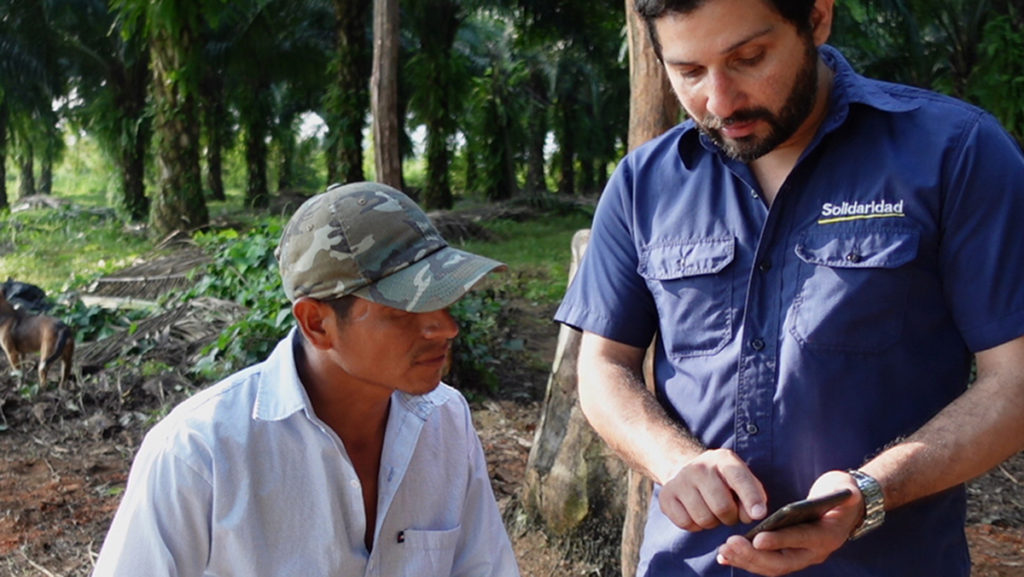
Farming Solution and Farm Diary (mobile apps developed by Solidaridad in South America and Central America, respectively) focus on continuous improvement and learning. Smallholder farmers gain insight into their social, environmental and economic performance through self-assessment and are able to manage improvements through a work plan. With these tools, smallholders have access to the information they need to progress towards genuinely sustainable farming practices. Aside from these apps, Solidaridad teams across the network create digital solutions that provide a wealth of information for improved decision-making across multiple value chains.
For example, Solidaridad in Brazil has developed the GHG Balance Tool, which calculates the footprint of multiple land-cover farming systems, specifically cocoa, livestock and forest. This tool can serve as inspiration for solution development in other regions that may be working on climate-smart landscape- and multi-commodity interventions.
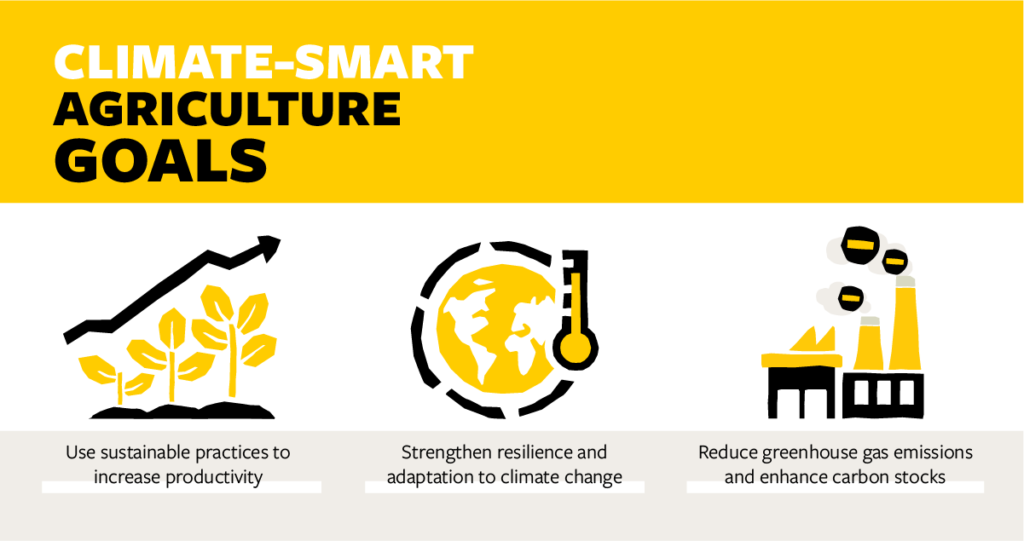
Our approach builds upon climate-smart agriculture and delivers on farm productivity benefits, adaptation benefits and GHG mitigation benefits. It’s based on three key steps:
- Understand climate risk and vulnerabilities of farmers
- Promote science based climate-smart business models to address risk and vulnerabilities
- Measure climate adaptation and mitigation impacts and cost effectiveness of risk-responsive interventions
Making carbon markets work for smallholders
By adopting climate-smart farming, smallholders deliver crucial ecosystem services such as carbon sequestration, biodiversity protection, water purification and soil conservation. Carbon markets are a great opportunity to reward farmers for their global environmental services and incentivize the adoption of better practices. This not only promotes enhanced net income streams to farmers, but it is also the best strategy to ensure more smallholders commit to adopting sustainable practices.
Solidaridad has a number of carbon market and climate-smart agriculture programmes and pilots underway that will demonstrate how carbon markets can work for smallholders.
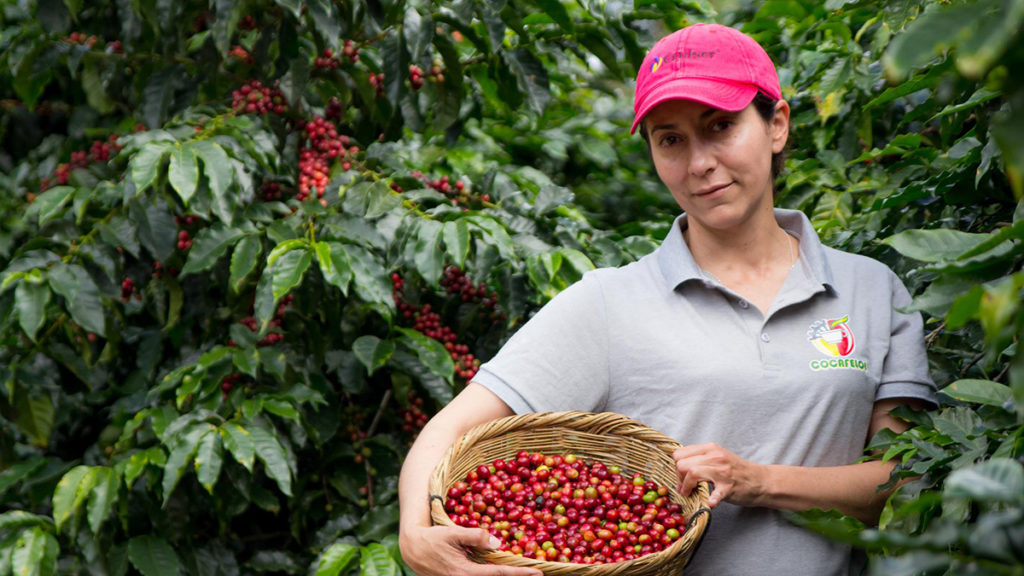
For example, a marketplace created by Solidaridad partner Rabobank offers lower transaction costs and a significantly higher carbon price compared to others. Farmers receive a truly fair share of about 80% of the carbon value. The rigorous data collection Solidaridad implemented in Colombia and Peru climate-smart coffee programmes enabled inaugural farmer carbon payments on the platform. Currently, we are scaling in both countries and preparing to pilot in Uganda, Indonesia, Nicaragua, India, Sierra Leone and Honduras.
In Colombia, Solidaridad works with farmers to optimize farm management and to enhance the benefits of natural resource management for the value chain at large. Collaborating with partner BanCO2, Solidaridad facilitated the first financial transaction that monetizes the conservation efforts of farmers. In Honduras, Solidaridad signed new partnerships in 2021 to promote sustainable coffee production, including pilots in carbon capture and value chain traceability.
Engaging all stakeholders to promote climate action in agricultural value chains
Solidaridad works with multiple stakeholders across agricultural value chains to develop public and private, local and national policy recommendations for sustainability and to support brands and companies to implement national regulations or voluntary standards.
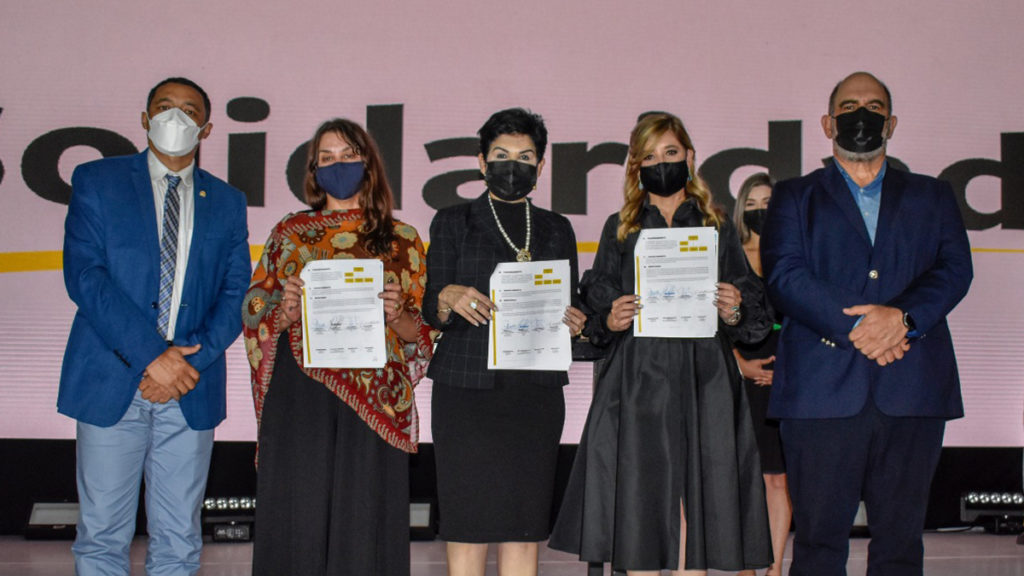
For example, through the Mesoamerican Palm Oil Alliance (MAPA), Solidaridad gathers thousands of palm oil sector stakeholders in Central America and Mexico—including small- and large-scale producers, extraction plants, buyers and civil society. Through MAPA, Solidaridad facilitated a public-private partnership to ratify the palm oil zero-deforestation agreement in Honduras. Solidaridad also leveraged MAPA to lead the palm oil sectors in Guatemala, Honduras and Nicaragua through their national interpretations of the RSPO Principles & Criteria and continues to work with smallholders to adopt sustainable practices and drive RSPO certification.
Also in Central America, Solidaridad works with sugarcane stakeholders through PanameriCaña, leveraging technology and other tools to engage key leaders, mill technicians, farmers and workers in meaningful conversations and interventions to achieve sustainable production and the reduction of environmental impacts. We signed a new agreement with Bayer to scale the MAS-CAÑA programme in Mexico, which supports smallholder farmers to implement sustainable practices in sugarcane production.
Partner with us
The strategies we implement across value chains require strong partnerships to deliver results. Support from impact investors, government bodies, public and private donors, as well as small, medium and large companies is essential to enable us to achieve meaningful impact at scale. With your support and collaboration, our initiatives can turn smallholder farmers into climate heroes that earn a living income, invest in sustainable and climate-resilient practices, practice deforestation-free agriculture and become part of a resilient and low-emissions food system.
Would you like to discuss how you can join us in climate action that creates change that matters? Let’s partner to strengthen climate resilience in agricultural systems and improve the livelihoods of millions of people. Please contact Climate Innovation and Business Development Manager, Eduard Merger

